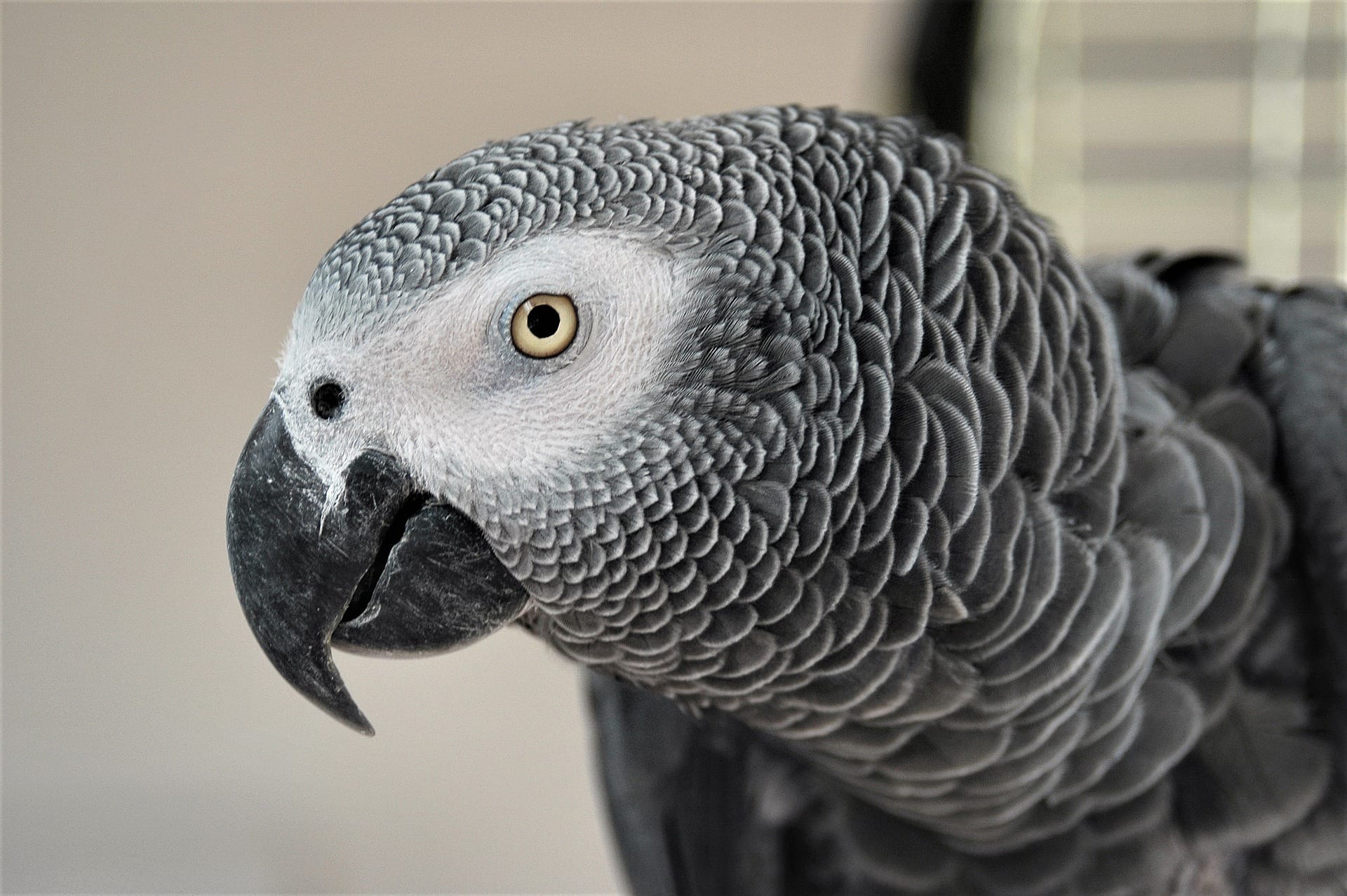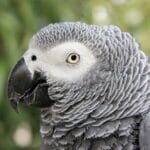Debunking the Myths: How Long Do African Greys Really Live?
African grey parrots have captivated bird enthusiasts for decades with their remarkable intelligence and charming personalities. But one of the most intriguing aspects of these feathered companions is their impressive lifespan. While rumors of 140-year-old parrots might make for fascinating tales, it’s essential to separate fact from fiction.
In this comprehensive guide, we’ll delve deep into the world of African grey longevity, exploring the factors that influence their lifespan, debunking common myths, and equipping you with the knowledge to provide a long and fulfilling life for these remarkable creatures.
A Tale of Two Lifespans: Wild vs. Captivity
To understand the true lifespan potential of African grey parrots, we must first acknowledge the stark contrast between life in their natural habitat and life in a loving home.
Wild vs. Captive Lifespans:
| Factor | Wild African Grey | Captive African Grey |
|---|---|---|
| Average Lifespan | 22.7 years | 40-60 years (some exceeding 70) |
| Threats | Predation, habitat loss, competition, disease | Limited to none in a controlled environment |
| Diet | Varied but inconsistent, subject to availability | Consistent, formulated diet supplemented with fresh foods |
| Healthcare | Limited to self-treatment | Regular veterinary care, early disease detection |
In the wild, African greys navigate a world fraught with challenges. They face constant threats from predators like eagles, hawks, and snakes, and must compete for limited food resources. Exposure to disease, habitat loss, and the ever-present dangers of the wild all contribute to a shorter average lifespan.
In contrast, captive African greys, when provided with proper care, can often outlive their wild counterparts by decades. A safe environment, a consistent and nutritious diet, regular veterinary care, and a stimulating environment all play a crucial role in extending their lifespan.
Tarbu: The Reigning Champion of African Grey Longevity
While the average lifespan for captive African greys is impressive, certain individuals have defied the odds, achieving truly remarkable ages. Tarbu, a male African grey parrot, holds the prestigious title of the oldest known African Grey, living an incredible 55 years.
Born in Tanzania in 1957, Tarbu eventually found his way to England, where he lived out his days until his passing in 2012. His story stands as a testament to the exceptional longevity achievable with optimal care and highlights the significant responsibility that comes with welcoming one of these long-lived companions into your life.
The 140-Year Myth: Separating Fact from Fiction
Rumors of parrots living for a century or more have circulated for generations, often fueled by anecdotal evidence and cultural myths. The reality, however, is far different. There is no credible scientific evidence or documented case to support a parrot lifespan of 140 years. While we may marvel at the possibility, it’s essential to rely on reputable sources, peer-reviewed research, and documented longevity records when assessing lifespan claims.
Beyond Species: Unveiling the Secrets to a Long Parrot Life
While African greys are renowned for their longevity, it’s crucial to remember that lifespan is not solely determined by species. A multitude of factors contribute to how long a parrot, regardless of species, might live.
Factors Influencing Parrot Longevity:
- Diet & Nutrition: Just like humans, parrots thrive on a balanced and nutritious diet. A varied diet rich in fruits, vegetables, and high-quality parrot pellets is essential for maintaining their health and supporting their long lifespan.
- Environment & Enrichment: A cramped cage can be detrimental to both the physical and mental well-being of a parrot. Providing a spacious and stimulating environment with plenty of opportunities for exercise, play, and social interaction is crucial.
- Veterinary Care: Regular veterinary check-ups are essential for early disease detection and preventative care. Just as we visit the doctor for regular checkups, parrots benefit greatly from routine visits to an avian veterinarian.
- Emotional Well-being: African greys are highly intelligent and social creatures. Neglecting their emotional needs can lead to stress, boredom, and even depression, all of which can negatively impact their lifespan. Providing ample opportunities for social interaction, mental stimulation, and enrichment is crucial.
The Ethical Imperative of Long Lifespans: A Lifetime of Commitment
The remarkable longevity of African grey parrots, while a testament to their resilience and adaptability, also presents a profound ethical consideration for potential owners. Unlike many other pets, African greys often outlive their human companions, requiring careful planning and a deep understanding of the long-term commitment involved.
Responsible Ownership Considerations:
- Lifelong Care: Are you prepared to provide care for a parrot for potentially four or more decades?
- Financial Resources: Veterinary care, high-quality food, and enrichment activities can be costly.
- Future Planning: Have you considered what will happen to your parrot if you are no longer able to care for it?
Bringing an African grey parrot into your life is a decision that should be made with careful consideration and a deep understanding of their needs. These intelligent creatures are not disposable pets; they are lifelong companions that deserve our respect, commitment, and unwavering love.
Outperforming the Competition: Taking Your Content to the Next Level
To truly stand out in the crowded digital landscape, consider incorporating these unique insights and untapped potentials:
- Focus on Quality of Life: Move beyond simply stating lifespan statistics. Discuss the importance of enriching activities, mental stimulation, and social interaction in ensuring a fulfilling life for African greys.
- Individual Variation: Explore the fascinating reasons why some parrots, even within the same species, live significantly longer than others. Highlight genetic factors and the role individualized care can play.
- The Aging Parrot: Address the specific needs of senior parrots, including dietary adjustments, environmental modifications, and recognizing signs of age-related health issues.
- Ethical Breeding & Conservation: Discuss the ethical implications of breeding and owning long-lived parrots. Promote responsible breeding practices, discourage the capture of wild parrots, and advocate for the support of reputable rescue organizations.
- Expert Interviews: Interview experienced African grey owners, avian veterinarians, and researchers to provide diverse perspectives and expert insights.
By weaving these elements into your article, you’ll create a comprehensive, engaging, and authoritative resource that not only informs but also inspires responsible and compassionate parrot ownership.
Don’t Miss Out!
Interested in learning more about the animal kingdom?
- Explore the fascinating world of the albino chimpanzee.
- Discover the remarkable size and strength of the 20 ft burmese python.
- Red Cloud, NE: Discover Willa Cather’s Legacy - April 11, 2025
- Remember Old Social Media Sites? Their Rise and Fall - April 11, 2025
- How many days till Feb 3?Accurate Countdowns & Tools - April 11, 2025
















2 thoughts on “African Grey Parrot Age Expectancy: Unveiling the Secrets to a Long Life”
Comments are closed.